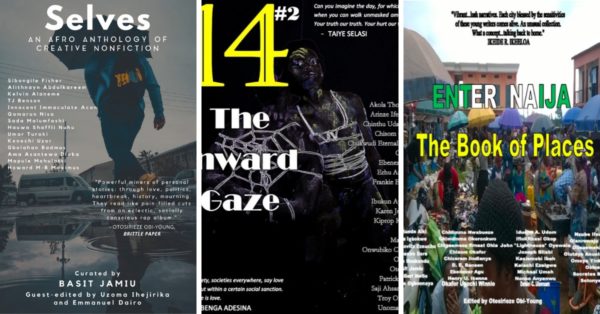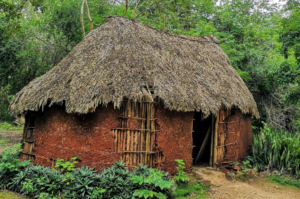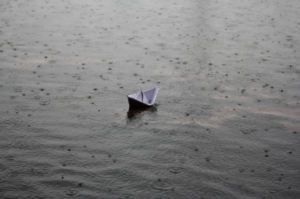
“Genre-bending”: that was the word used by the organisers to describe Kola Tubosun’s winning entry for the 2018 Miles Morland Writing Scholarship, a biographical work on Wole Soyinka. The book, as proposed, documents the iconic writer’s love for nature, his efforts at restoring natural habitats, “all the while paying tribute to the great body of work Soyinka has gifted the world.”
Given the latest surge of interest that has recently been accorded the genre in the continent, I find any prospect of a new book of creative nonfiction very exciting. Only there is nothing genre-bending about a biography of an octogenarian writer. Neither is it less of a cliché, that trope about ageing creatives who become increasingly enamoured by nature and its offerings. A lot, an actually extensive lot, also has been written, more as tributes than as reviews, about Soyinka’s body of works.
There are chances, obviously, that it could have been the prose style, the language, or some other non-plot techniques that attracted the “genre-bending” description. I fear now that this could be perceived as me posturing opinions on a book that has not even been completed not to talk of published. A curious observer might ask whether a biographical work focused on the life of a yet unaccomplished millennial, written in as much—or more—masterful prose as Tubosun’s, and engaging subjects of emotion and mental health, would have been equally considered by the judges?
Conclusions can easily be made on an observation of the general state of contemporary literary nonfiction in Africa: first, it is currently dominated by millennials; second, the works being published in this genre are mostly self-obsessed; third, they are inarguably brilliant. All of which invite the questions:
i. are biographies and autobiographies more like written documentaries than literary works?
ii. where does the line blur between the expressively creative and factually narrative?
iii. does the strength of the writing lie more in the significance of the subject’s life or in the craft?
Recent non-fictive literary projects coming out of Africa have demonstrated an increasing self-awareness among writers, a good number of whom fall into the millennial generation. The success of such projects as the Art Naija Series (Enter Naija: The Book of Places in 2016 and Work Naija: The Book of Vocations in 2017) and the Afro Anthology Series (Selves: An Afro Anthology of Creative Nonfiction in 2018), show that the African readership has matured into a demography capable of appreciating stories told by un-influential, unknown millennials about their “insignificant” but familiar millennial lives. In Selves, for example, only two stories are focused on popular figures—the writers Binyavanga Wainaina and Petina Gappah, in Sada Malumfashi’s “Finding Binyavanga” and Oris Aigbokhaevbolo’s “Going to Gappah’s Geneva,” respectively. Both born in 1971, a decade before the age bracket for millennials, the two popular writers do share certain peculiarities with millennials in their committed use of social media. The rest of the stories have their lenses turned inward, challenging other millennials to do the same with their own stories. The remarkable reception enjoyed by those pieces offers the assurance that, contrary to fears previously harboured by sceptics like me, there is actually a readership base capable of supporting a genre of such particularities.
A distant observer would normally expect, when the very ordinary and equally dramatic lives of millennials are put into literary focus, a plethora of half-baked pieces filled with neoliberal jargon and the sort of humour-centric phrases riotously populating new media. Miles Morland, founder of the Miles Morland Writing Scholarships, probably had this sort of expectation when, in reference to the 2018 shortlist, he commented rather wistfully that he’d “like to see more of the humour for which countries like Nigeria are famous.” That would be unlikely; not because the often-hyped humour that countries like Nigeria are known for turns into hard-nosed sombreness when they write, but because they are aware of the need for nuance and heft in writing life stories.
The likely talking point against millennial nonfiction is that it tends to border on the egocentric and narcissistic. Another is the problem of verification; since the subjects of such stories are not so popularly known figures, it would always be problematic trying to verify the authenticity of their stories. A section of critics—the ones who emphasise the factuality of nonfiction over their other life as creative expressions—would obviously have serious and legitimate concerns with the latter issue. But that is borne from a largely unnecessary attempt to police the border between fiction and memoir which, Lidia Yuknavitch warns, could result in the loss of the “emotional gut punch of life stories.” At this point, I am resisting the temptation to dredge up a 2016 debate arising, coincidentally, from Kola Tubosun’s concerns about the eligibility for the Caine Prize, a fiction award, of Tope Folarin’s short story, “Genesis,” a story that Tubosun referred to as “nonfiction” and “autobiographical.” As for the egocentrism and narcissism concerns, we might want to contrast them with the nearly sycophantic or clearly libellous approach of some biographies on successful, older figures.
The tendency to overblow the significance of events, it seems, is not the sole preserve of millennial nonfiction; Maryse Condé has decried as untrue some inferences made by her publishers in their press releases for her own book. The 2018 New Academy Prize in Literature winner states in an excerpt of her book made available on The Johannesburg Review of Books:
Why is it that any attempt to write about one’s life ends up as a jumble of half-truths? Why does it have to be that any autobiography or memoir all too often becomes a construction of fantasies where the simple truth fades, then disappears altogether? Why is it that we are so anxious to depict a life so different from what we have lived?
Her particular complaint was that the circumstances surrounding her first meeting with her later husband and the lead up to their marriage were romanticized out of shape.
In a 2015 piece on Brittle Paper, Oris Aigbokhaevbolo needfully called for increasing involvement with the nonfiction genre by African writers; gifted as they are with the tools for sentence creation, they should look beyond fiction into the not-so-appreciated but not-less-important creative nonfiction. “It would be anathema,” he writes, “to be competent at the sentence-level and be monotheist; the writer is impelled to ‘serve many gods.’”
Ellah Allfrey has been quoted as suggesting that the genre is in a “germinal phase,” inferring a transient process, perhaps into a period of increased involvement with the genre.
What these imply is that, summatively, nonfiction in African literature hasn’t attained the position it should and could. But for that to change, either or both of two things need to happen.
The literary establishment, for one, could inspire change by lessening the rigidity characterising publishing on the African literary scene. More publishing platforms need to give free reins to writers writing nonfiction. This is not suggesting that projects always be themeless (something I would personally have preferred); it is a demand that opportunities for publication not be doctored in efforts to conform to established but misleading notions about what constitutes an Important Story. No one story is more important than the other—a story is only as important as the telling of it.
Propositions have been made—and argued against—for a bypassing of the literary gatekeepers in the publication of literature in Africa and elsewhere. This is not even as revolutionary as it initially sounds when the easily available tools of new media are factored in. Opponents of this, however, fear that it could lead to a proliferation of poorly written stories all over the literary space. Not to dabble, at this point, into the already over-flogged debate on the benefits and pitfalls of literary democracy, but we could at least conclude that projects like the Afro Anthology Series and the Art Naija Series, independent of the gatekeepers as they are, and given their recent output, have proven to be not less, if not more, devoted to curating high quality writing from the continent.
About the Writer:
Chinaecherem Ọbọọ writes from Abakaliki and Nsukka where he was Prose Editor for The Muse, the University of Nigeria’s literary journal. His works appear in Praxis Magazine, Brittle Paper, Prufrock and Saraba magazine. His creative nonfiction, “This Story Has Not Ended,” is featured in the print version of Selves: An Afro Anthology of Creative Nonfiction.








Nonfiction Friday | Doing Dewey February 08, 2019 15:39
[…] interesting piece on millennial biographies and recent nonfiction writing from African authors that also discusses creativity vs truth in […]